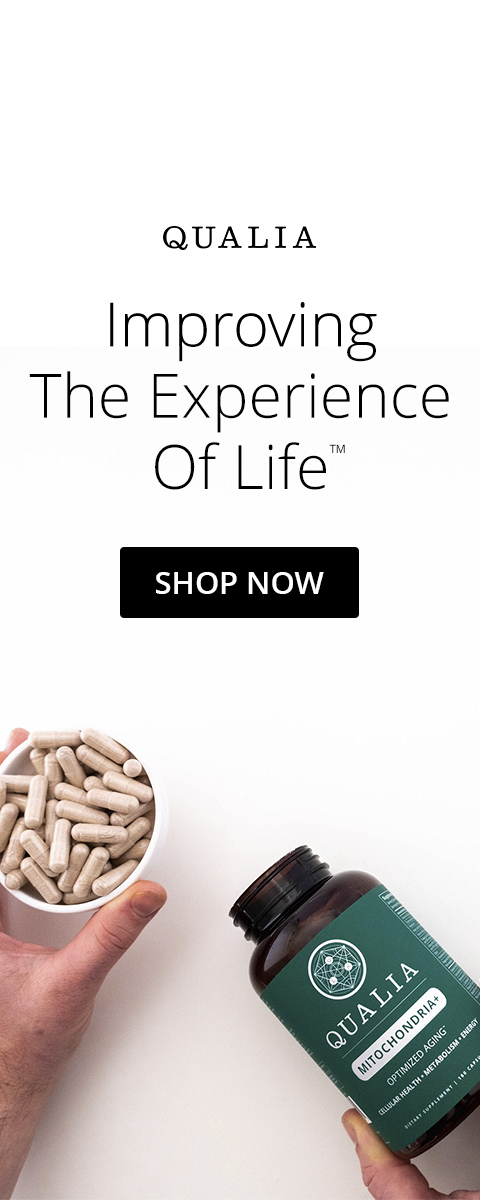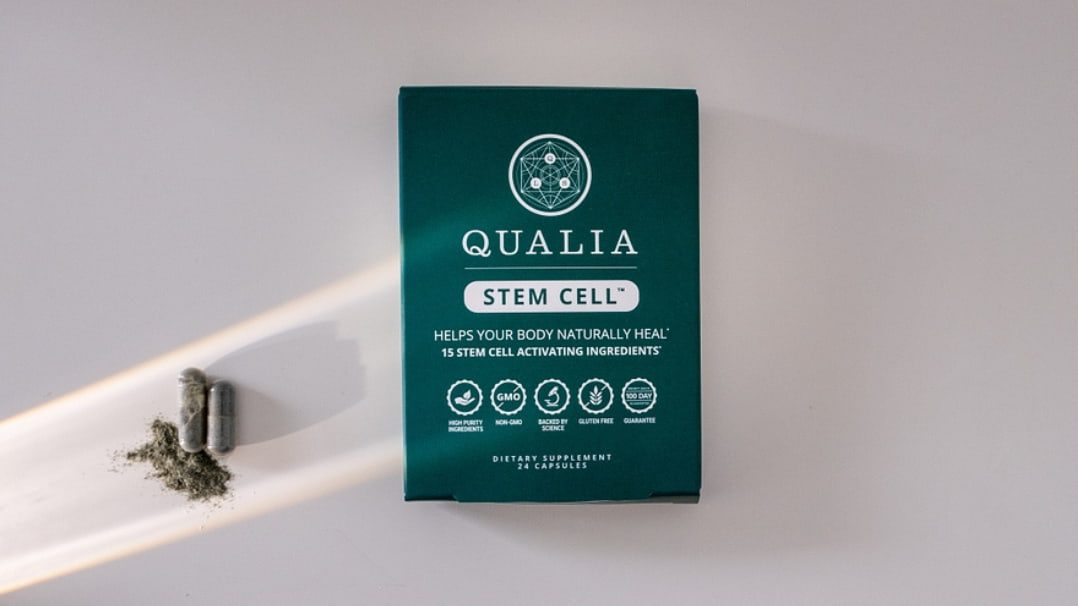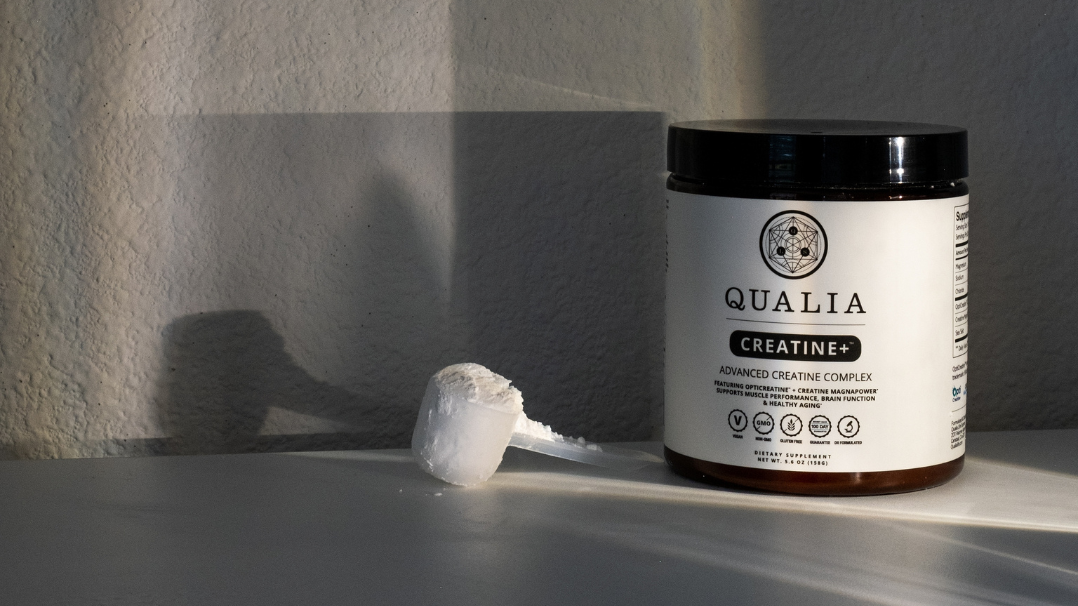When people hear the word stress, more often than not, emotional strain comes to mind. While emotional stressors are definitely part of the equation, “stress” must be viewed holistically in order to attain true well-being. Lack of sleep, excess sugar and refined carbohydrates, and daily exposure to toxins are all components that tax our body, putting our health, longevity, and mental wellness at risk.
In honor of Stress Awareness month we bring you twelve simple, yet effective, ways to get our bodies, minds, and souls back on track, especially when we are under high stress.
Breathe to Relax
You've probably heard that deep breathing is relaxing. But, quickly recovering from stress has more to do with your breathing rate (how many breaths you take each minute) than with how deeply you breathe. One approach is to slow your breathing pace to 6 breaths a minute for a few minutes anytime you feel stressed. This means breathing in for 5 seconds and breathing out for 5 seconds for about 5 minutes. This is called "Paced Breathing." A variation that also includes holding the breath between inhalations and exhalations is box breathing. Spending just 5 minutes practicing either paced breathing or box breathing will help you recover from all types of stress.
What to do: Practice paced or box breathing at least once a day for 5 minutes. Use one of these breathing techniques anytime you feel stressed.
How to do it: To practice paced breathing, breathe through your nose, with a 5 second inhalation and a 5 second exhalation. The goal is to have 6 breaths per minute for about 5 minutes. This free YouTube video called Cardiac Coherence/Biofeedback Tool is an excellent way to master the pace. A good beginning box breathing approach is: (1) inhale for 4 seconds; (2) hold your breath for 4 seconds; (3) exhale for 4 seconds; (4) hold your breath for 4 seconds; and (5) repeat. Want to learn more about box breathing? Listen in as Mark Divine, owner of Unbeatable Mind and SEALFIT explains how box breathing can help you take deliberate control of the breath to refine your autonomic nervous system and bleed out stress.
Chew Gum Vigorously
Dozens of studies have found the simple act of gum chewing can help with stress. Examples of research include Chewing Gum For Over 10 mins Relieves Stress and Could Chewing Gum Boost Performance, Reduce Stress? Gum chewing might be particularly helpful when you are exposed to something acutely stressful. For example, in one study participants felt more stressed when hearing loud noise, but less so when they were simultaneously chewing gum. To get the most benefits, it’s important to chew strongly and quickly. This reduces stress hormone levels much more than slow chewing. It's also important to chew for about 10 minutes.
What to do: Chew a piece of gum vigorously for about 10 minutes whenever you are feeling stressed.
How to do it: Buy gum and keep some with you at work, in your car (while driving), or any other place where you typically feel stressed. Two suggestions for healthier gums are Simply Gum and Pur Gum.
Stress Support From Adaptogens
Adaptogens are plants that help us adapt to and recover from stress. Soviet researchers, beginning in the 1950's, discovered that certain plants helped people to respond better to stress from things like too much exercise; exposure to extremes of temperature, chemicals, radiation, or infections; or stress from interactions with others (e.g., mental-emotional stress, social stress).
Taking an adaptogen might give you the extra strength and stamina needed to deal with the stress better and avoid getting sick or run down. Excellent adaptogens include ashwagandha (Withania somnifera), American ginseng (Panax quinquefolius), Black Ginger (Kaempferia parviflora), Golden Root or Rhodiola (Rhodiola rosea), and Southern Ginseng (Gynostemma pentaphyllum).
What to do: Use adaptogens a bit like you would exercise, cycling them on for about 5 days a week and then taking a few days off.
How to do it: Qualia Mind and Eternus include adaptogens and other nutrients that support healthier stress responses. Add one or both to your daily routine. Taking an adaptogen is a bit like exercise. To get the best exercise results we want to allow time for exercise and recovery. And benefits from exercise don't occur by doing it just once. Adaptogens work on the same principles. Adaptogens help with stress when we take them and take short recovery breaks from them, and do this over time.
Dark Chocolate: A Delicious Stress Reliever
Theobroma cacao can be translated as chocolate, food of the gods. The beans are the source of the cocoa used to make chocolate. Many studies, including more than 20 on blood pressure, link eating dark chocolate with better heart health. Several studies have also reported links between eating chocolate and stress reduction. In one study, eating dark or milk chocolate, daily, for 2 weeks reduced perceived stress, especially in females.
What to do: Eat a few small squares a day of dark chocolate (up to 1.5 ounces).
How to do it: Eat dark chocolate, high in cocoa, to get the most health benefits from chocolate. Or look for products like Eternus that contain cocoa extracts high in heart healthy cocoa flavanols. For more information read Health by Chocolate.
Smile Your Way To Less Stress
Studies show the mere act of smiling can impact our ability to deal with stressful situations. A study called Grin And Bear It is a great example of this. The gist of the findings was that people who smiled while doing something stressful recovered much more rapidly. This was especially true when they smiled by lifting the corners of their mouth and squeezing or crinkling their eyes. Finding smiling faces in the world around us also helps with stress and lifts our mood.
What to do: Smile more often, especially when you are doing a stressful task or (or starting to feel stressed because of something outside of your control such as being stuck in traffic).
How to do it: Smiling can become a habit. If you consciously train yourself to smile more often for the next 6 weeks, you'll find yourself smiling more without having to think about it. The same is true for focusing on smiling faces. Practice finding the smiling faces around you when you are out in public or by using the PsychMeUp! app.
Shift Your State With Tend And Befriend Tasks
"Tend and befriend" behaviors are one of the best antidotes to stress. These are behaviors such as tending to the needs of children, helping out a friend, and being affectionate with a loved one. One of the best "tend and befriend" behaviors is hugging. Hugging helps reduce stress, lower blood pressure, and improve attitude. Frequently hugging a loved one also helped reduce the symptoms of the common cold when people were exposed to the cold virus.
What to do: Give the people close to you big, affectionate hugs.
How to do it: Create the hugging habit. This means get into the habit of giving the people close to you big hugs whenever you see them.
Meditation: The Perfect Tension Tamer
Meditation is one of the most studied stress reduction techniques. Getting started with meditation is easy. Start by sitting for two minutes a day, with a goal of increasing the time you spend meditating by one minute a week, until you get up to 20-30 minutes.
There are many different meditation techniques. One popular technique is to fix your mind in the present moment by focusing on one specific thing —your breathing, a sensation in your body, or a particular object outside of you. The point of this type of meditation is to focus your attention on one thing and continually bring your attention back to it whenever your attention wanders. Read more about the benefits of meditation at The Power of Meditation and How It Affects Our Brains and The Science Behind Meditation, And Why It Makes You Feel Better.
What to do: Meditate for 2 minutes ...gradually increase the time you spend meditating.
How to do it: Sit comfortably and close your eyes. Focus your attention on one thing (e.g., your breathing, a sensation in your body). Bring your attention back to this one thing whenever you notice that it's wandered away. Use a meditation app to help you learn meditation. Great apps are Headspace and Calm. Some meditators have used Qualia to help with their meditation practice.
Soothing Sounds For Stress Management
Environmental sounds and background noise are an important piece of the stress puzzle. Some sounds create stress, while others reduce it. Mechanical noise, traffic, airplane noise, and many other man-made sounds and noises produce stress. If you are exposed to these sounds frequently it can raise blood pressure and cause a low- grade stress response. Relaxing music, like classical music, late Renaissance music, and smooth jazz (especially if it has a saxophone), can help with stress, as can nature sounds (e.g., rippling water, falling rain, forest sounds).
What to do: Use classical music (check out this study on the impacts of listening to Pachelbel's Canon), late Renaissance music (e.g., Miserere), smooth jazz, and relaxing sounds from nature as an antidote to stress.
How to do it: Youtube has recordings of Pachelbel's Canon, Miserere, and many other classical or Renaissance music pieces (composers to try include Mozart, Haydn, Beethoven, Vivaldi, Scarlatti, Handel, and Corelli). Calm, the app referenced above, also has hundreds of hours of original compositions, nature sounds, and white noise engineered to help you focus and relax.
Stop And Smell The Roses
The saying “Stop and smell the roses” is a reminder that it's important to take time to pause and appreciate the good things in life. One of these good things, coincidentally, is the scent of fragrant things like flowers.
Fragrant scents positively affect mood and decrease stress. Small white flowers, like jasmine and citrus blossoms, tend to be especially fragrant. Lavender has been shown to improve mood, soothe anxiety, and even reduce some physical pains. Vanilla Extract is another aromatherapy happiness booster
What to do: Take a few moments each day to smell something wonderful.
How to do it: Put something fragrant on your desk, in your bedroom, or other places you spend time. Flowers, flowering plants and aromatic oils are all good choices. Putting jasmine oil on your wrist is another way to increase the fragrant scent in your life. Rotate aromas and fragrances to avoid habituating to them.
Heartwarming Videos For Stress Relief
The heart is intimately connected to emotions in English and many other languages. We think of the heart as synonymous with love. Modern science has found our emotions have powerful effects on the heart. Stressful emotions like anger, worry, fear, and anxiety place a burden on the heart and increase risk for heart disease. Positive emotions do the opposite, lifting the burden.
One way to tap into these positive emotions is to watch comedy TV shows and movies that make us laugh, cry tears of joy, or feel some other positive emotion. A good rule of thumb is if a character experiences something that causes them to have a positive emotion, you will too.
What to do: Spend some time every day watching something that makes you laugh or feel a positive emotion.
How to do it: Watch TV shows and movies that make you laugh, cry tears of joy, or feel love, gratitude, etc. Spend a few minutes a day watching a short heartwarming video such as this great video round-up from Mashable or search for "heartwarming" on YouTube.
Lower You Stress Response By Spending Time With Animals
Pets help us deal better with stress. Bringing a dog to work lowers office stress. Even if the pet isn't yours, simply being in the same room with pets can reduce stress. Fish are one of the most popular stress-reducing pets. If you don’t have a pet and are feeling stressed, try watching online videos of animals. In one study watching cat videos lowered stress and increased feelings of happiness.
How to do it: Play with and be affectionate with pets. Spend time watching fish in a home aquarium. If you don't have access to a pet, watch YouTube videos of Aquariums such as Coral Reef Fish or Aquarium 2hr Relax Music.
The Single Most Important Thing You Can Do To Manage Stress
What is the most important thing you can do to manage your stress? Dr. Mike Evans decided to answer this question. After doing lots of research, what did Dr. Evans conclude? The single most important thing to do is to change your thinking.
He created an 11-minute video that discusses why this is important and what you can do about it.
What to do: Watch The Single Most Important Thing You Can Do For Your Stress.
Resources for Managing Stress:
Blog: Hormesis: Benefits of Managing Your Stress Response
Blog: How to Biohack Your Way to Less Stress
Podcast: The Biology of Resilience: The Science of Growing Through Stress
Podcast: Stress Reduction, Psychedelics, and Breathwork with Dr. Andrew Weil
Blog: Box Breathing: A Breathing Technique to Focus the Mind
Blog: Hormetic Ingredients and Dosing Range
 Written by
Written by







